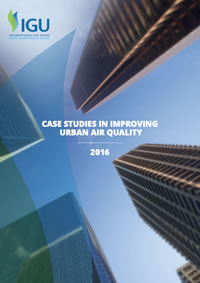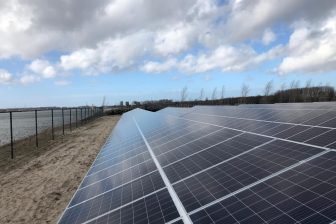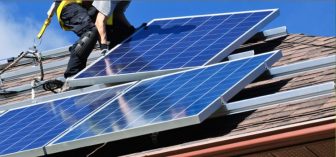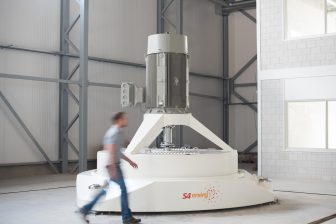‘Overstap van olie en steenkool op aardgas beperkt luchtvervuiling aanzienlijk’
24 november 2016 – Overstappen van steenkool en olie op aardgas kan de luchtvervuiling ‘aanzienlijk’ terugdringen. Dat concludeert een onderzoek van de Internationale Gas Unie (IGU) is een nieuw onderzoek, dat o.a. in Rotterdam werd gehouden. Nu leeft een Rotterdammer gemiddeld drie jaar korter.
Uit een persbericht van de IGU
 ‘(…) Het gebruik van aardgas in energieopwekking, verwarming en transport kan luchtvervuiling aanzienlijk verminderen. (…) Door luchtvervuiling zijn er in 2012 ongeveer 400.000 doden gevallen in de EU. (…)
‘(…) Het gebruik van aardgas in energieopwekking, verwarming en transport kan luchtvervuiling aanzienlijk verminderen. (…) Door luchtvervuiling zijn er in 2012 ongeveer 400.000 doden gevallen in de EU. (…)
Het onderzoek van de IGU toont de correlatie aan tussen de vermindering van luchtvervuilende stoffen en de uitstoot van broeikasgassen die bijdraagt aan de klimaatverandering. Het bevat bovendien case studies van vier Europese steden, waaronder Rotterdam, waar minder gebruik wordt gemaakt van steenkool voor energieopwekking en verwarming, en meer gebruik wordt gemaakt van aardgas voor transport. In deze steden is de uitstoot van broeikasgassen verminderd en de luchtkwaliteit aanzienlijk verbeterd. Het onderzoek kijkt verder ook naar andere mogelijkheden, zoals alternatieve energie, die de luchtkwaliteit verbeterd of kan verbeteren zonder dat het de economische ontwikkeling remt.
“Luchtvervuiling vormt een grote bedreiging voor het milieu en de volksgezondheid. De maatregelen die zijn genomen in Rotterdam tonen aan dat gas een belangrijke rol speelt in de verbetering van de luchtkwaliteit in stedelijke gebieden. Deze case studies tonen aan dat de verschuiving van steenkool naar aardgas vaak de snelste en meest rendabele aanpak is om de luchtkwaliteit te verbeteren en de uitstoot van broeikasgassen te verminderen die bijdragen aan de klimaatverandering,” aldus David Carroll, voorzitter van de IGU.
Rotterdammer leeft drie jaar korter
In 2014 was de levensduur van een inwoner van Rotterdam drie jaar korter dan de gemiddelde Nederlander door de hoge mate van luchtvervuiling. Veel uitdagingen in stedelijke luchtvervuiling komen voort uit havenactiviteiten, haven verkeer en de omgeving van industriële installaties. (…)
Rotterdam en LNG
Rotterdam begon met het bunkeren van LNG in augustus 2016 en is van plan om drie LNG tanken te installeren tegen het einde van 2016. De overstap naar LNG in de haven kan de NOx-uitstoot verminderen met 90% en SOx en PM-emissies met maar liefst 100%. (…)’
Het rapport over Rotterdam
‘Ademen in Rotterdam is als het roken van zes sigaretten per dag‘
‘(…) Despite being the second-largest city in one of Europe’s most prosperous countries, Rotterdam is still coping with serious environmental challenges. In 2014, the lifespan of a Rotterdam resident was three years shorter than the average Dutch citizen due to the high levels of air pollution. Breathing the air of Rotterdam is the equivalent of second-hand smoking 6 cigarettes a day. Although air quality improved between 2004 and 2013, with the concentration of NOx in the air dropping 13%, Rotterdam’s NOx emissions have reportedly increased again and are exceeding EU standards. The Port of Rotterdam is ground zero for the city’s struggle against pollution, and is implementing initiatives to improve citywide and regional air quality by lowering emissions through the expanded use of LNG as a fuel for seagoing and inland waterway vessels. LNG emits less PM, SOx, NOx and CO2 than traditional bunker fuels, such as heavy fuel oil, marine gasoil or diesel fuel. The pioneering role that the Port is playing in supporting the use of LNG as a fuel will contribute to reduced air pollution in Rotterdam and the surrounding areas.
.
Keuze van Rotterdamse haven voor LNG wordt al zeer positief beoordeeld
The Rotterdam Climate Initiative (RCI), which was introduced in 2010, aims to improve air quality in the port, the city and the surrounding industrial areas. As a port city, many of Rotterdam’s air pollution challenges stem from port operations, port-related tra c and nearby industrial facilities. The industrial sector (which is heavily concentrated around the port area and responsible for 85% of Rotterdam’s greenhouse gas emissions) has played a leading role in advancing the climate initiative. The widespread adoption of LNG in the port is one of the initiative’s key pillars.
Switching to LNG in the port can reduce NOx emissions by up to 90% and SOx and PM emissions by up to 100%. LNG’s lower carbon content can also help reduce emissions by up to 20% when it replaces heavy fuel oil.
Because LNG is considered a cleaner alternative propulsion fuel, the European Union is strongly supporting LNG refueling points at maritime and inland ports. With this policy support in place, marine LNG consumption can be expected to spread in the future, both for EU internal waterways and the high seas.
In addition, the International Maritime Organization decided in October 2016 to reduce the permitted sulfur content in marine fuels from 3.5% to 0.5% for all vessels operating outside the designated Emission Control Areas (ECAs) starting on January 1, 2020. Although LNG adoption has been largely limited to inland vessels thus far, port operators report significant interest among ship owners in switching to LNG bunker fuel, especially for new build vessels.
Offering LNG bunker fuel is increasingly a source of competitive advantage for ports like Rotterdam. LNG-propelled vessels are already compliant with the stricter emissions standards that have been in place in the English Channel, Baltic and the North Sea since 2015, and will also meet the more stringent sulfur requirements post-2020.
Rotterdam started LNG bunkering operations in August 2016 and is planning to have three LNG fueling berths installed by the end of 2016. In addition, Shell will supply Rotterdam with an LNG bunkering vessel in 2017. Meanwhile, there are already four inland vessels in Rotterdam that are using LNG as a fuel.
In addition to growing its LNG bunkering capabilities, the port has incorporated LNG truck loading facilities that will boost its ability to supply smaller quantities of LNG to both Rotterdam and landlocked cities across the Netherlands, facilitating emission reductions in road transportation. In January 2016, the Gate regasification terminal loaded its thousandth truck with LNG, continuing the steady increase of road-transported LNG after loading 174 trucks in 2014 and 788 trucks in 2015. A second loading platform is currently under construction. (…)’
.
.
Bronnen
IGU, Nederlands persbericht, 23 november 2016: Nieuw onderzoek van Internationale Gas Unie toont positieve impact van aardgas op luchtkwaliteit in steden
IGU, internationaal persbericht, 23 november 2016: Case Studies in Improving Urban Air Quality – New edition
IGU, rapport, 23 november 2016: Case studies in improving urban air quality – 2016 (pdf, 23 pag.) (passage Rotterdam op pagina’s 18 en 19)



